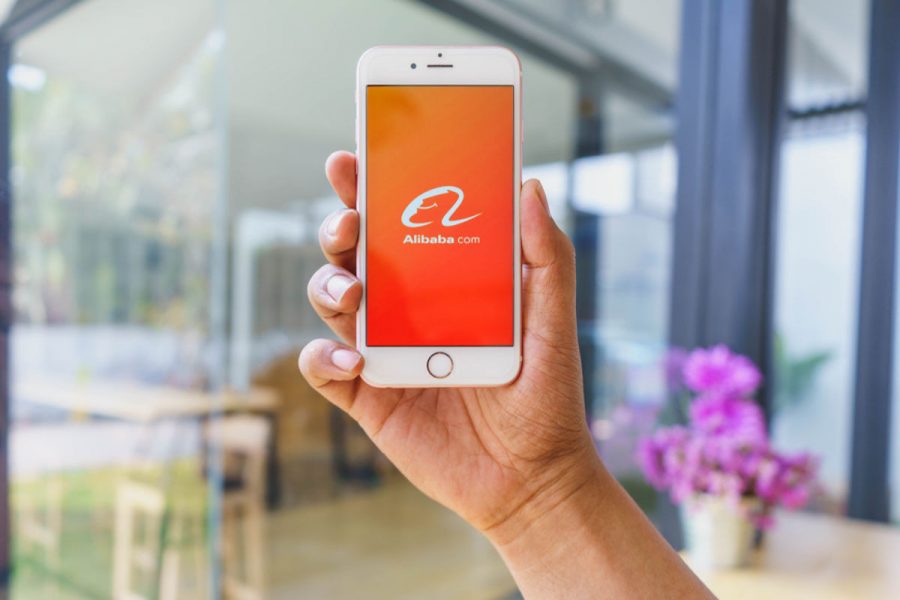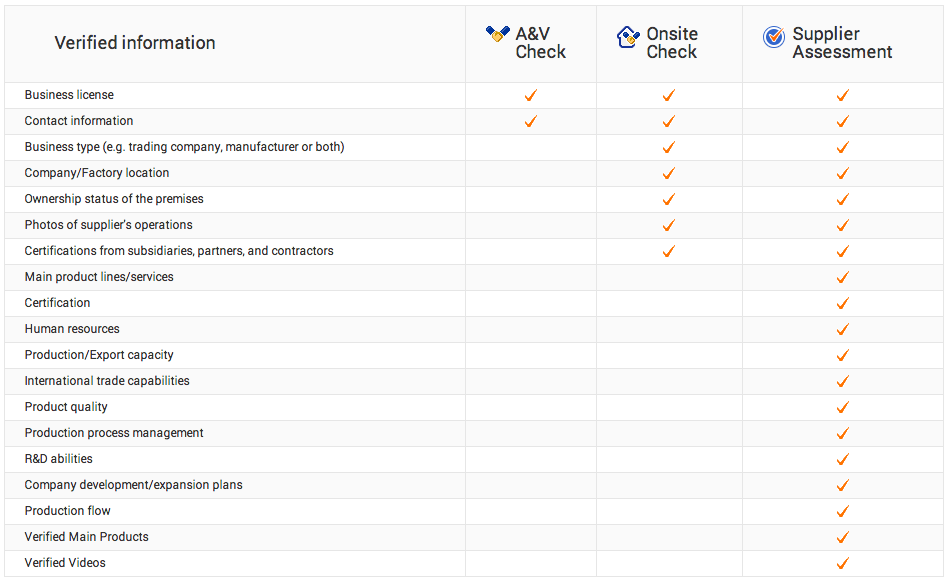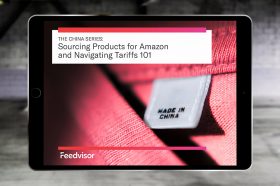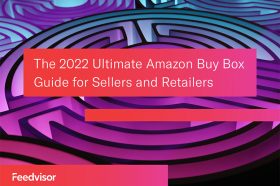Resources - Blog
How to Buy From Alibaba to Sell on Amazon

Alibaba, the Chinese e-commerce company providing manufacturing sourcing options for businesses of all sizes for affordable prices, provides retailers that are just starting out on Amazon and those that are scaling and diversifying their business an avenue to source items directly from an extensive network of suppliers themselves.
While it may seem like a bulletproof business strategy, importing wholesale from Alibaba to sell on Amazon does have considerable risks, namely, safety (avoiding scams) and finding the right products to sell. Once sellers have done their market research and utilized a scouting tool to identify profitable products that fill a need or are a viable line extension, they can move on to the next step: deciding on a sourcing option that makes the most sense for the product and their business as a whole.
Download our free playbook to discover how to source products from China for Amazon and navigate import tariffs.
What Is Alibaba?
Founded by billionaire business mogul Jack Ma in 1999, Alibaba has transformed into one of the world’s biggest retailers and e-commerce companies, with the China-based marketplace now reaching over 779 million annual active consumers as of 2020. Offering a massive portfolio that features a wide variety of products, Alibaba has quickly become a go-to source for many sellers on Amazon in search of lower inventory costs. However, sellers who are interested in purchasing products from Alibaba should know that there are several risks involved with using the Chinese company that could adversely affect your business if you are not careful.
Is It Safe to Buy From Alibaba?
With the proper due diligence, customers can ensure that they have a secure e-commerce experience with Alibaba. There are tons of reputable manufacturers and suppliers (by specific product category) who have been in the industry for years and Alibaba has established a positive reputation and credibility for itself as a known marketplace.
With Alibaba, it’s important to maintain security by trading exclusively with gold suppliers, the company’s premium suppliers. These suppliers pay Alibaba to appear higher up in the search results. Despite deals or factory certifications that non-gold suppliers may have, an added layer of security of buying only from gold suppliers will help avoid scams and bad suppliers. Next, with Alibaba’s trade assurance program, buyers’ orders are protected. It mitigates risk by guaranteeing money back in the event of a supplier failing to meet the terms of the order contract, such as delivery delays, quality and quantity discrepancies, or other processing problems.
If a buyer runs into an issue with the supplier, they can submit a claim to Alibaba. The company will then review it and if they agree that the factory has in fact made a mistake, buyers can get their money back. However, it’s important to keep in mind that any step in the process that can cause a roadblock (quality control, lead times, etc.) need to be documented in the sales agreement. Additionally, when buying on Alibaba to sell on Amazon FBA, merchants should avoid branded products. The marketplace is not a legitimate source for branded products and rather is meant for generic goods and a place to ensure that the item wasn’t patented by a brand already. If something is on Alibaba as a branded item, chances are that it belongs to a national brand and selling it would be illegal, as it would be considered counterfeit.
Stay on top of the latest e-commerce and marketplace trends.
Risks Associated With Buying From Alibaba
Next, when buying on Alibaba to sell on Amazon, it’s important to consider the risks associated.
Avoiding Scammers on Alibaba
Alibaba constantly works to pinpoint “middlemen” who are masquerading themselves as manufacturers and mark up prices and buy from the suppliers themselves, allowing more room for miscommunication between the buyer and actual manufacturer.
When importing from Alibaba with the end goal of selling on Amazon, buyers should always be on the lookout for scammers who will take their money. Although Alibaba works diligently to remove scammers from their platform, there are still dishonest suppliers out there that can botch an entire sourcing process. The marketplace has their own verification program in place, which includes several levels of verification. The chart below summarizes the three different levels and the verification badges will appear on product listings and supplier profiles if they have them.

It will also be critical to ask the suppliers questions about their business and products as buyers get closer to making a supplier decision. They shouldn’t hesitate to ask for a copy of their business license and a phone number that can be tested to make sure it’s valid. Buyers can also have a Skype meeting with their contact and ask for photos of the factory and sample products before the physical samples are sent. If a supplier places ample attention on the payment process (and make it clear that they want to be paid right away), buyers should be cautious through the entire transaction.
Low-Quality Products on Alibaba
Additionally, product quality can be a concern when importing product from overseas. While items will be listed on Alibaba as “premium” or “high quality,” there have been instances where the buyers discover that their impression of “premium” quality and the supplier’s opinion are drastically different. In order to combat this, buyers should always get samples to verify an item’s quality, look, and feel before investing any money into inventory for that item. Many buyers have contacted the supplier through another name and email to get an additional sample and compare quality.
How to Buy From Alibaba and Sell on Amazon?
Since there are many risks with using Alibaba, sellers on Amazon need to be careful with how they source products from the platform. If you decide to use the Chinese company, make sure to only use their top-rated vendors and gold-tier suppliers that have good reputations. This will help mitigate any possibility of delays or issues with payments.
After you have researched a specific product and found the right supplier to use, reach out for a quote and samples using the request form. Be as clear as possible with your request and include questions on all the important details like minimum order quantity and pricing, production time, and other needs. Once you have a sample in hand and are happy with the results, you can proceed with finalizing your order.
Choosing the Right Products
Sellers cannot expect to succeed solely by importing the same products via wholesale that competitors are selling on Amazon. They should look for something unique that can be private labeled and that fills a gap or a need, that people actually want to buy. With thorough competitor and product analysis, sellers will be able to drill down to an item (or multiple items) that makes sense to source via Alibaba.
When planning to sell on Amazon after receiving an item from Alibaba, merchants can work with their supplier to ensure that it is in the proper packaging for Amazon, in order to avoid double work. Sellers can determine if a product is right for their business if it fits their sourcing criteria. For example, a specific seller might be looking for items that are light and easy, that they know the market for, that fills a gap or a niche product need, and that can be sourced at an affordable price and resell at a competitive price.
Learn what Feedvisor can do for your business.
When you partner with Feedvisor, you automatically receive access to our true, AI-driven technology and hands-on team of e-commerce experts. Contact one of our team members today to learn more about our end-to-end solution for brands and large sellers on Amazon, Walmart, and e-marketplaces.



